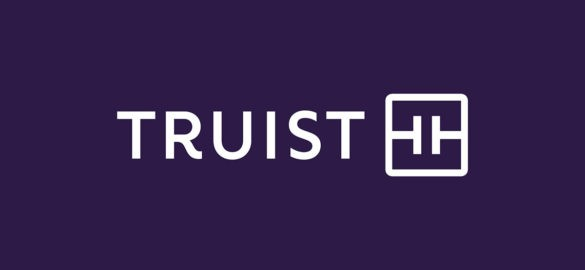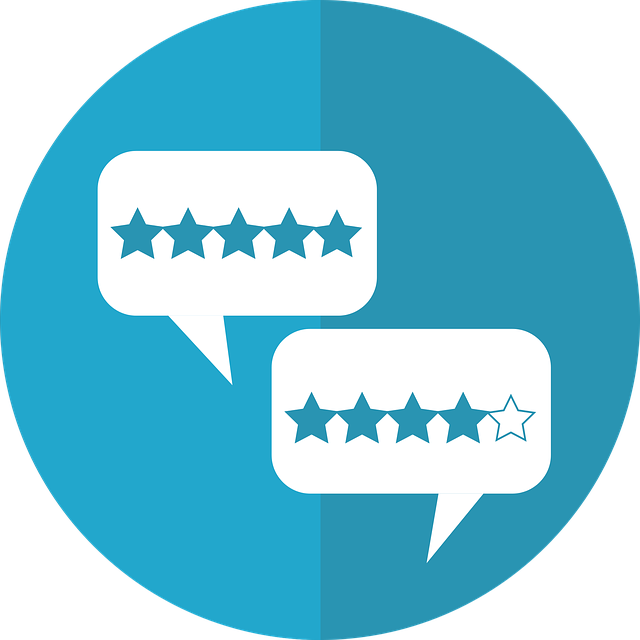› Business Loans › Lender Reviews › Truist Business Loans Review
To learn more about Truist Bank and decide if it’s right for your needs, please continue reading:
Thanks to alternative lending platforms, small business owners have more financing options than ever. However, some business owners prefer doing business with a traditional brick-and-mortar bank lender.

The problem is that many commercial banks focus on enterprise-level financing for large corporations. Truist Bank is one exception because it offers traditional financing options for small businesses, including secured loans up to $250,000 and unsecured loans up to $100,000, with terms extending to 60 months. This makes it a viable option for small business owners seeking manageable loan terms. Truist Bank, formed from the merger of SunTrust and BB&T, provides these options to cater to diverse business needs.
However, the traditional lender might not be the right fit for every business. Truist Bank offers diverse loan products, including term loans, lines of credit, equipment financing, and commercial real estate loans, each tailored to address specific business financing needs. We can help you decide if Truist meets your financing needs by covering the pros, cons, and how to apply.
Specifically, we’ll answer these questions and more:
Truist Bank is a leading financial institution that offers a wide range of financial products and services to individuals, small businesses, and large corporations. With a strong presence in the East Coast and Southern regions, Truist Bank operates an extensive network of nearly 2,800 branches across the United States. This extensive network ensures in-person customer support for its clients.
The bank’s headquarters is located in Charlotte, North Carolina, and it has total assets of $526.7 billion as of Q1 2024. Truist Bank maintains a strong financial position with a Common Equity Tier 1 (CET1) ratio of 10.1% as of Q4 2023, indicating robust capital strength and stable lending practices. Truist Bank is committed to providing personalized service and community engagement, making it an ideal choice for businesses seeking traditional financing solutions.
The Dynamic Business Checking account offered by Truist Bank is designed to fit and grow with your business. This account provides a streamlined solution with various benefits, including a $200 bonus for new clients. With a Dynamic Business Checking account, you can earn an additional interest rate discount of up to 0.50% on your loan. This account is perfect for businesses that need to manage their finances efficiently and take advantage of opportunities as they arise.
Truist is one of the largest banks in America, having emerged due to the merger between SunTrust and BB&T Bank in 2019. It’s a brick-and-mortar bank that offers consumer and commercial banking services, including small business loans.
The bank offers a hybrid model, where you can apply for certain loans online but must apply in person for others. It provides various traditional business loans, but you won’t find the fast funding options like merchant cash advances or invoice factoring that other lenders offer. Some Truist products do not require collateral, while larger loans might require verification of business assets.
However, its focus on small business lending – and the limited borrowing amounts available – differs from other traditional banks that primarily focus on multi-million-dollar deals for large enterprises. The lender is a good fit for small business owners who want traditional, in-person banking and lending experience.
Truist Bank emphasizes a relationship-based approach to lending, providing personalized lending solutions through dedicated relationship managers who work to understand individual business needs. Business owners often report receiving prompt customer service from Truist’s dedicated small business advisors. Truist’s expertise in providing financial support and personalized advice helps business owners with tailored solutions that meet their unique needs within different communities.

The bank offers various term loans and lines of credit. All Truist business loans carry origination fees.
Here are the loans offered by Truist Bank. Business owners should consider multiple options to find the best financing choices suited to their individual financial situations.
Truist’s term loans typically feature repayment terms of up to 60 months, making them suitable for various business needs.
Term loans are traditional financing structures where you receive a large sum of cash upfront and repay it plus interest over the loan term. Truist offers both unsecured and secured term loans.
Unsecured loans do not require collateral, making them a good option for business owners who don’t have strong business assets. The bank’s unsecured business term loan option only lets you borrow a maximum of $100,000.
Secured loans include collateral. The assets you pledge give more security to the lender, which is why no collateral loans are unsecured and collateralized loans are secured. You can borrow up to $250,000 with a secured term loan.
This type of financing is best for large one-time purchases or expenses. You can use the loan proceeds for various business objectives. It is crucial to align term loans with your overall business goals and strategies to ensure that financial decisions contribute directly to achieving these goals.
A business line of credit provides an available credit limit to draw funds as needed. A line of credit can help significantly with cash flow management. Truist offers unsecured and secured lines of credit starting at $3,500, with unsecured lines reaching up to $100,000 and secured options up to $250,000. These lines of credit have repayment terms ranging from 12 to 36 months, providing flexibility for short-term financing needs.
Like its term loans, unsecured lines of credit only go to $100,000, while secured lines go up to $250,000. A revolving line of credit is like a credit card. You draw funds as needed, and your credit limit replenishes when you pay off what you draw.
Non-revolving lines of credit are closer to a loan for a fixed amount. Instead of getting all the funds at once, you can draw from the line as needed. Once you’ve drawn all the funds, the line of credit closes.
You only pay interest on the money you draw from your line of credit. This type of financing is good for working capital, ongoing projects, seasonal businesses, and unexpected costs.
Companies that need to purchase a vehicle for business use can consider a business auto loan. The bank offers financing for 110% of the vehicle cost, with the extra 10% available for soft costs such as delivery fees, tags, title, and insurance.
A commercial auto loan is similar to a consumer auto loan, but the vehicle is titled and registered in the business’s name. The vehicle you’re financing usually serves as collateral for the loan.
Equipment financing can include various pieces needed for business, including computers, restaurant equipment, manufacturing machinery, construction equipment, and business vehicles. Truist’s equipment financing solutions cater to businesses looking to purchase or refinance essential equipment, with amounts ranging from $3,500 to $250,000. Like its business auto loans, Truist can finance 110% of the equipment costs with an extra 10% to cover soft costs. Soft costs only apply when financing passenger, commercial, agricultural, or construction vehicles.
You can use either the commercial vehicle and equipment loan or auto loan to buy vehicles for your business. Commercial vehicle and equipment loans would be for specialty vehicles that include equipment, such as food trucks, heavy machinery, and more. The auto loan option is better for a standard car.
Truist’s business real estate loans provide funding to purchase, renovate, or expand a location. Truist offers commercial real estate loans supporting the purchase or refinancing of commercial properties, with amounts starting at $3,500 and extending up to $250,000, featuring terms of up to 180 months. These loans also offer loan-to-value ratios of up to 85%, making them a competitive option for real estate financing. SBA loans can also be utilized for various business needs, including real estate acquisition. Closing costs add the the expense of real estate loans.
Truist Bank is an SBA lender, but they do not offer online applications for these loans. Potential SBA borrowers must visit a bank location in person to apply. Alternatively, you can work with a Truist representative over the phone to complete the application process. Truist is an SBA-preferred lender that can streamline the approval process for eligible borrowers. However, SBA loans generally require extensive documentation compared to other loan types.
That requisite limits where Truist SBA loans are available. The bank is active mainly in the southern and eastern United States.
Truist Bank provides a selection of small business credit cards designed to enhance purchasing power and financial flexibility. These cards offer the opportunity to earn rewards while benefiting from competitive interest rates. They can also serve as an alternative form of financing for small business owners. Additionally, Truist provides online resources and financial management tools to support small business owners beyond lending.
Tailored to meet the diverse needs of business owners, Truist’s credit cards can help manage seasonal cash flow, support inventory expansion, and capitalize on new business opportunities. Additionally, cardholders can efficiently track expenses, making it easier to maintain control over their financial operations.
Truist Bank doesn’t list a minimum credit score, time in business, or annual revenue to apply for any of their small business loans. Personal finances may play a role in business financing decisions. You must contact the bank or apply to see if you will qualify.
You will need to provide the following: Applicants should understand the documentation required and the challenges they may face in the application process, as this can significantly impact their chances of securing financing. To ensure a smooth application process, businesses should prepare various financial and business documents such as financial statements, tax returns, and business plans.
The lending products best suit business owners who bank with the company. It is a full-service bank, so its focus goes beyond business lending. Truist maintains a network of nearly 2,800 brick-and-mortar branches across the U.S.
A small business owner with a Truist Dynamic Business Checking account can save 0.5% on their loan interest rate. Additionally, signing up for auto-draft payments can provide an extra 0.25% interest rate discount. Truist offers an interest rate discount of up to 0.50% for small business customers who maintain a checking account.
While it offers small business loans, it also provides commercial lending. Businesses that earn more than $2 million annually would potentially be eligible for the bank’s large financing options, such as commercial real estate loans.
Funding times could take several weeks since it’s a traditional brick-and-mortar bank. However, Truist business loans allow business owners to manage cash flow and seize new growth possibilities. The timeline for loan approval can range from a few days to a couple of weeks after submitting a complete application, with total time to funding possibly extending to several months. Comparatively, alternative lenders usually fund loans within 72 hours, and some offer same-day funding.
The website does not provide information on any business loan affiliate program. ISOs and business loan brokers should contact the lender to see if they can offer their products to their small business clients.
SBA borrowers must apply at a branch. Otherwise, you can apply online, over the phone, or at a branch. Follow these steps to apply online. The loan application can be completed online for non-SBA loans, while SBA loans require working with a Truist representative either on the phone or in person.
The Truist small business loan website provides a convenient loan application. You’ll select the loan type and loan amount you’re seeking.
A Truist representative will contact you if your application is approved. You will discuss the application with a loan officer who might ask for additional documentation.
The bank will walk you through the next steps if you decide to move forward after getting your loan amount, terms, and interest rates. Truist Bank’s application process includes several key stages: online application, documentation submission, application review, additional information requests, loan decision, and closing and funding. The closing and funding process varies depending on the loan type.
Managing debt obligations is crucial when taking out a small business loan. Most Truist business loan products carry monthly payments. Lines of credit might have weekly payments. Sign up for auto-draft payments and get a 0.25% interest rate discount.
You can set up automatic payments to avoid missing any payments. Most loans have an APR, so you can save interest by paying them off early.
Secured term loans carry a potential 15-year amortization period. At the end of the 5-year term, you would have three choices:
This is called a balloon loan because it carries a balloon payment at the end of the loan term. There are some risks involved. If Truist declines to renew the loan, you’d have to secure financing elsewhere or make the large payoff out-of-pocket.
One of the primary benefits is that the bank works with small business owners. You do not need to meet a minimum credit score, revenue, or time in business requirement to apply.
The bank offers various traditional business loans. You can find financing options for most business needs.
Auto and commercial loans provide up to 110% of the equipment price to help cover soft costs. You also get a convenient online application.
The bank does not provide transparency on interest rates or qualifications. You must apply to see if you’re eligible and what the costs will be.
Loan amounts only go up to $100,000 for unsecured financing and $250,000 for secured business financing. Those limited amounts are smaller than many small business loan options.
You can only apply for SBA loans at a branch location. There might be balloon payments for real estate loans and secured term loans.
Funding can take a long time. There are no fast cash financing options. Note that when comparing Truist to other lenders, it is important to consider fees and operational history to make informed financial decisions.

Yes, Truist is an SBA lender, but it does not provide an option to apply online. Business owners interested in an SBA loan through Truist must apply at a branch location.
The US Small Business Administration (SBA) partially guarantees SBA loans and limits what lenders can charge. The partial guarantee gives lenders the security to offer higher borrowing amounts at lower interest rates and longer terms. One advantage of SBA loans is that they have lower interest rates than standard loans. SBA loans are backed by government guarantees, facilitating risk for lenders.

Truist has many negative reviews, but they are all from the consumer banking side. Most negative complaints concern mortgages, personal checking accounts, and other consumer services.
The bank has a 1.1 out of 5 rating on over 1,000 Trustpilot reviews. It has a 1.1 out of 5 rating on over 2,000 Better Business Bureau (BBB) reviews. However, it is BBB-accredited with an A+ rating.
While it doesn’t set minimum qualifications, Truist will pull your credit report when you apply. The bank examines your credit history and business financials when determining approval. Lower credit scores, inconsistent revenue, and other issues could trigger a denial.
If you were declined, the denial letter should explain why. Contact the bank directly if you need more information. Truist exhibits flexibility regarding the operational history of loan applicants, accommodating businesses at different stages of development.
Fortunately, there are many lenders available if Truist doesn’t work. You can try another commercial bank, like Wells Fargo or CIT Group. However, you might have more luck with one of the various alternative lenders and lending marketplaces when seeking financial assistance for your company.
Most alternative financing facilitators provide a convenient online application process with quick approvals and fast funding options.
Here are some other small business loan options to consider.

Truist small business loans are best suited for business owners who want a traditional banking experience and don’t need urgent funding. While the lender doesn’t publish interest rates, banks typically have very competitive costs.
Small business owners who need quick funding or want to apply for an SBA loan online must find a different lender. In addition, if you’re not using Truist business banking services, you might prefer a lender or marketplace that focuses exclusively on business financing.
Based on the loans and information available, we rate Truist Bank small business loans as 3.9 out of 5. It’s a worthwhile option if you want a traditional lender, but the funding times and lack of transparency on costs are problematic.
Disclaimer: The Truist trademark is owned by Truist Financial Corporation and its use herein is for reference purposes only and it does not indicate sponsorship or endorsement from Truist Financial Corporation.


Fraud Disclosure:
Please be aware that individuals have been fraudulently misrepresenting to business owners (and others) that United Capital Source, Inc. (“UCS”) can assist small businesses in receiving government grants and other forgivable business loans, when in fact those grants or loans do not exist or are not available. These individuals have ulterior motives and are engaging in the unauthorized use of the names, trademarks, domain names, and logos of UCS in an attempt to commit fraud upon unsuspecting small business owners.
UCS will never communicate with a prospective client on Facebook, Facebook Messenger, or any other type of social media. Further, any email communications will always come from an official UCS email address and not a Gmail, Yahoo, or other email domain. If you believe you have been contacted by someone posing as an employee of UCS, please email [email protected].